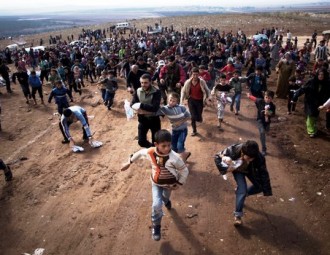New law to speed up refugee status acquisition is elaborated in Belarus

The law will enable to go through all the procedures for getting refugee status in 6 months.
Amendments are being prepared in the Law “On Refugees”, which are expected to simplify the procedure for obtaining refugee status and asylum in the country, tut.by quotes Aliaksei Biahun, head of the Department of Citizenship and Migration of the Ministry of Internal Affairs.
“Previously, foreigners could live in Belarus up to 1.5 years, waiting for the final decision. First, they are trying to obtain refugee status, if they don’t succeed – an asylum, trying to appeal the denial... Under the new rules, all the procedures can be completed in 6 months,” Aliaksei Biahun said.
According to Biahun, the Parliament is also to pass the Law "On External Labor Migration". It will adjust the employment of foreigners in Belarus and Belarusians – abroad.
At the same time, it will be more difficult to become a citizen of the Republic of Belarus. Applicants will have to pass a test on one of the official languages and the basics of the country’s history.
Over the six months of 2015, the refugee status was granted to as few as seven people. Five of them are from Afghanistan; one is from Lebanon and one from Syria.
Simultaneously, interim protection was provided to 392 Ukrainians, 37 Syrians, seven Libyans and one Lebanese.
A total of 599 people have applied for the refugee status or interim protection in the six months.
When applying for the refugee status, a person can receive 180,000 rubles.
In order to obtain the refugee status, a person must have a well-founded fear of being persecuted for reasons of race, religion, nationality, and membership in a particular social group or political opinion. Also, a person must be in a situation where he or she cannot or does not wish to benefit from the protection of his or her home country.
Interim protection can be granted to those who have no grounds to apply for the refugee status. Protection allows immigrants to find a job and receive free health care.
-
03.01
-
07.10
-
22.09
-
17.08
-
12.08
-
30.09



























